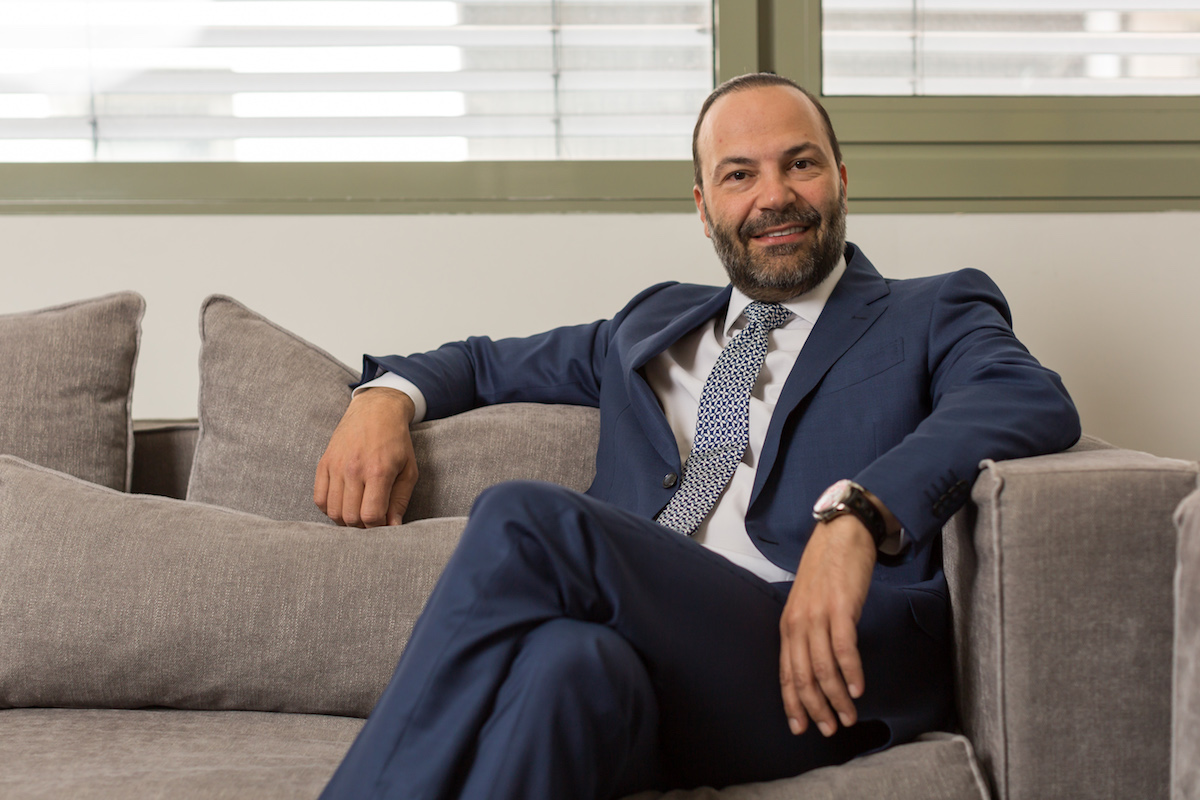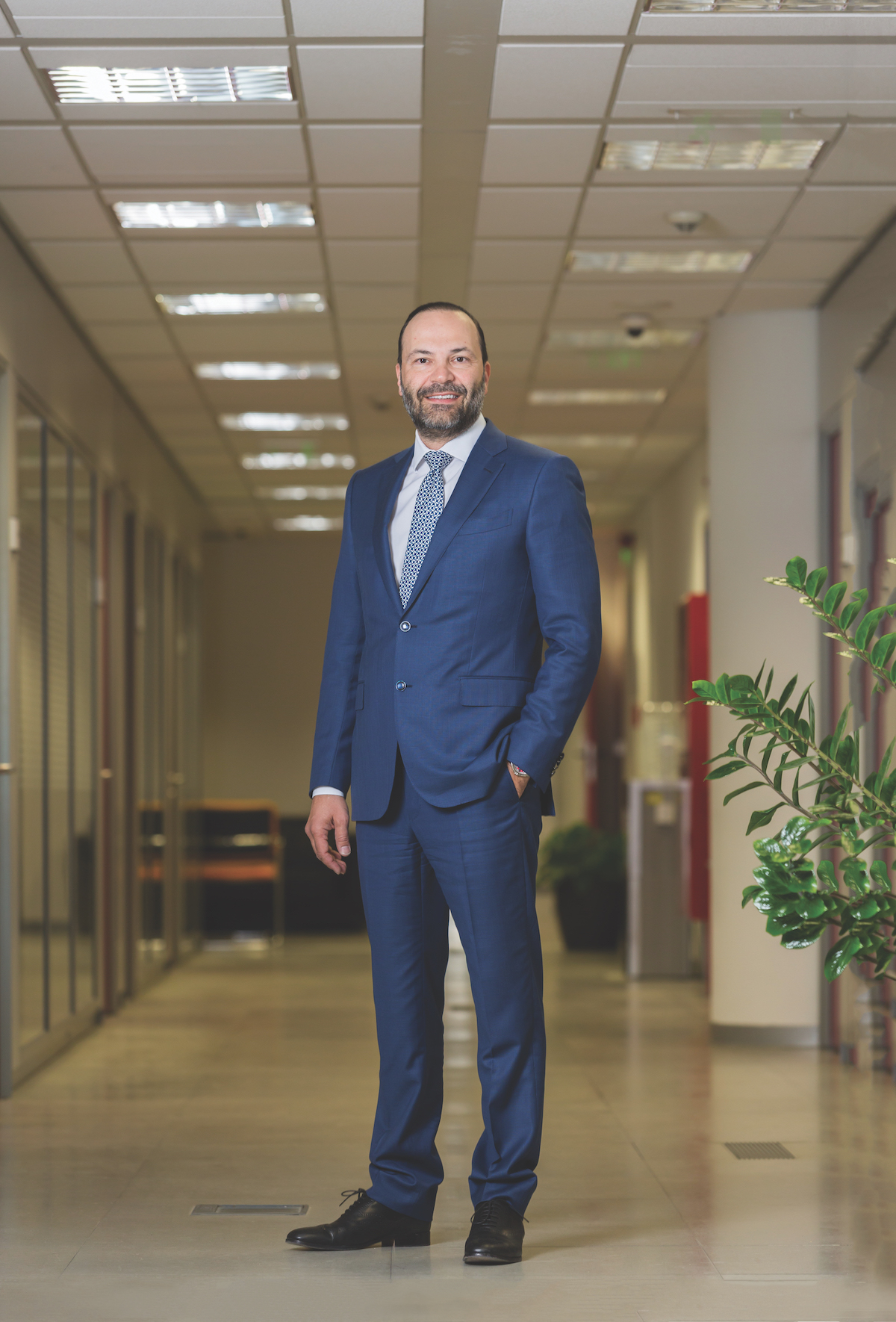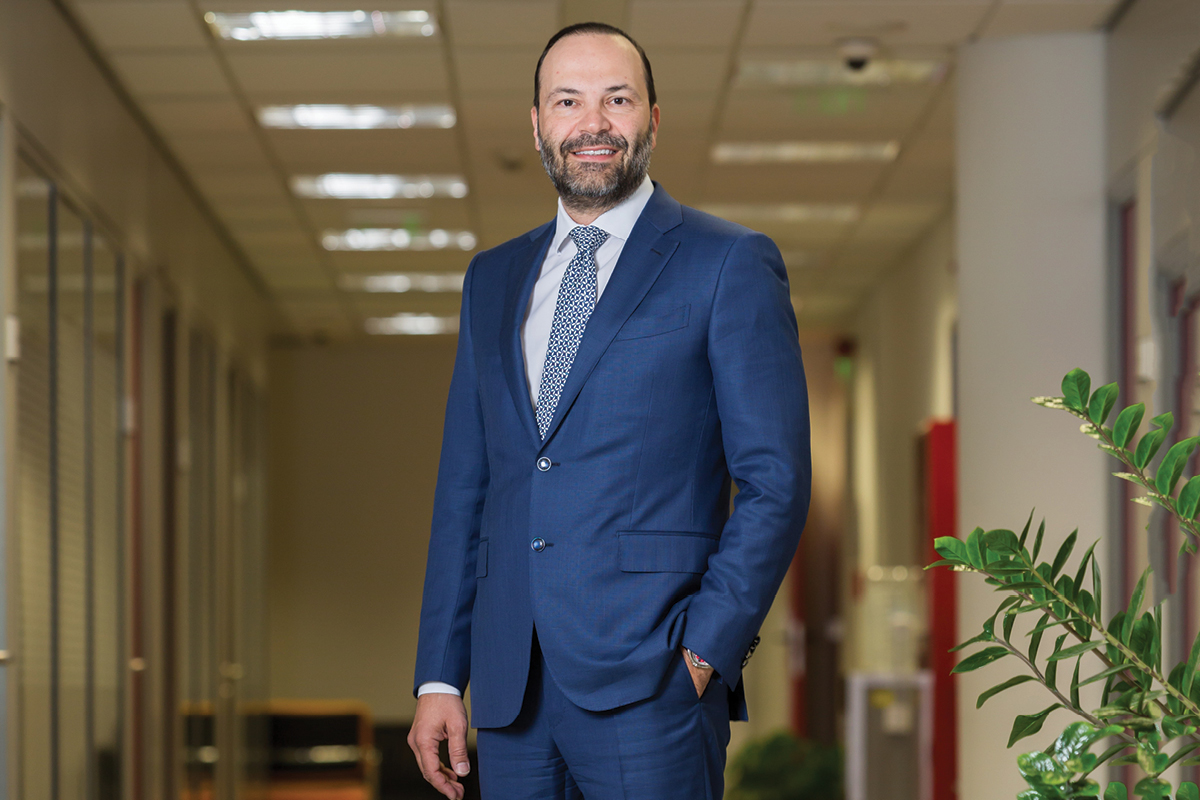Olympia Group is a company that supports its national economy, ‘building bridges’ between the past and the future. A multinational with 6,000-plus employees and a turnover of more than €2 billion has a huge responsibility, and leading the charge at Olympia as CEO is Kostas Karafotakis. The executive has been with the company since 2006, initially as general manager before stepping into the top spot.
One of Greece’s largest firms, Olympia owns a diverse range of nine businesses, including a major electronics brand and an entertainment retailer. It has operations in Greece, Cyprus and Eastern Europe. In an interview with The CEO Magazine, Kostas explains the significance of ‘bridges’ and having local support, details how he successfully runs a group that covers multiple sectors, and shares the key to success in a tough economic climate.
The CEO Magazine: What do you bring to your role as CEO?
Kostas: I’m a member of a group that provides opportunities and showcases its executives, and this is proven by the long-term relationships and partnerships it maintains. We build relationships of trust among ourselves, and we share the same vision of robust growth that has been instilled in us by our founder, Mr Panos Germanos.
It’s especially vital for a manager who wishes to run the daily operations of a multinational group with a turnover of over €2 billion and more than 6,000 employees to have personal insight and experience into its various operations. This means I can act globally and swiftly when required, while at the same time being able to evaluate and utilise the business tools that exist, as well as the labour force, to the greatest extent possible.
Having worked across Olympia’s subsidiaries in Bulgaria, Romania and Ukraine, as well as in Greece, did you find the cross-cultural experience beneficial to your leadership?
Having worked abroad for many years, and more specifically in Eastern Europe, I have found that doing business in particularly difficult areas – like Eastern Europe at that time – helps one to cultivate traits such as flexibility and adaptability.
At the same time, by maintaining close ties with Western Europe, due to capital markets in Athens, or London and New York where I would often travel, I was able to marry experience with flexibility. This was a unique opportunity in terms of my professional development.

How have you watched Olympia grow and evolve?
Olympia – which I had the honour of serving as general manager from the very first day – essentially began in 2006. Over the course of a decade, we have witnessed tremendous development and physical maturation. We tried and tested novel ideas in Greece that we brought from abroad.
We created and developed new companies: Public retail chain, Westnet Distribution in technology products, and Sunlight Systems in the lead battery production industry, which today represents one of the country’s strongest forces in exporting. In 2016, Olympia entered the sector of business software production through the company SoftOne.
Over the past two years, we’ve also been active, through AASA, in the markets of Central and Eastern Europe and Scandinavia in the consumer loan allocation sector. The branch we have focused on, and which has proven to be the most fruitful, is mobile operations. Since 2008, we’ve had a presence in Poland through the mobile telephony provider Play.
Since being appointed CEO, what have been some key milestones?
We saw our investment in Poland grow rapidly, with Play evolving very quickly into an industry leader within that country. We emerged on the international markets, issuing bonds amounting to €1.2 billion, and at the same time executing one of the largest refinancings the Polish market has seen – existing debt to local currency.
In the industrial battery production unit, Systems Sunlight, we placed the company on a spectacular trajectory of growth. In the retail trade sector, we were able to bring Public back into profit.
Is it challenging running a corporate group that expands across multiple sectors? How does a multifaceted approach drive success?
It’s like having a family with 6 children. You need to feed all of them, to educate them, and to look out for them equally and without bias. Thus, we believe that while it’s a very demanding process, it’s also a great challenge. We have set common principles and moral tenets across our entire business.
At the end of the journey, everything leads to one thing: to operate according to the code of business ethics and to generate value, as much for shareholders as for the people who do business with us, such as our employees and suppliers.

How have Olympia’s markets evolved over the past few years, and how has the company worked to keep pace with new demands and challenges?
The Group does business in extremely dynamic sectors that cannot remain static. This intensifies our alertness and reflexes, so that we can stay ahead of the curve. To achieve this, we make continuous investments and implement programs for strategic development.
The companies that will survive are the ones that adapt quickly and intelligently to new market conditions. The culture of Olympia is governed by drive, outreach, productive investments, and exports. During the past five years alone, the company has invested over €250 million in the Greek market, creating 400 new jobs since 2015.
Olympia possesses the necessary capital to fully fund the investment plan of the Group’s subsidiaries. Meanwhile, our shareholders possess financial strength and an excellent business reputation that reaches far beyond the country’s borders; thus they themselves, and the Group as a whole, benefit from the esteem of major international funds that have worked with us for at least the past 10 years.
Olympia’s website makes many references to bridges. Can you explain what it symbolises?
At Olympia we build bridges between the present and the future, joining today with tomorrow; the 40-plus-year history of the Group’s presence in Greece with the future. Bridges ensure a smooth, creative and successful transition. Through its multifaceted activity, Olympia believes in the prospects of a local market and firmly supports the Greek economy. At the same time, for 20 years now, it has also created value in the international business scene through exports and its presence.
How have the turbulent economic conditions in Greece impacted the company’s growth plans?
The ability to manoeuvre and to adapt is an awesome advantage over executives who work in calmer and more predictable environments. All of these things force one to be constantly alert – a competitive advantage we have as a group. We’re a team of modern, relatively young people. A characteristic trait of ours is that we maintain a balance between Greek issues – which basically pertain to the crisis – and international experiences.
A lesson we’ve learned is that we must always be prepared for the worst. We were prepared to face the crisis, and we believe this is why – without being arrogant – we have achieved so much in this challenging environment.
What are some future strategic goals or initiatives you’re able to share?
The goal is for our Greek operations to further expand. We believe that, after the crisis, we will certainly find ourselves in a better position than at present. The primary thing for us for the future is to locate new investment opportunities. We will enjoy the journey of the strategy that we have implemented to date. We do not, however, have any intention of simply being satisfied with the successes that we have achieved.
We do not have any intention of simply being satisfied with the successes that we have achieved.
At Olympia, we believe in large models, in the synergies of large groups, and in the benefits that these can result in. We estimate that in Greece a new consolidation cycle will exist in various business sectors, and we plan on being present when that occurs.



